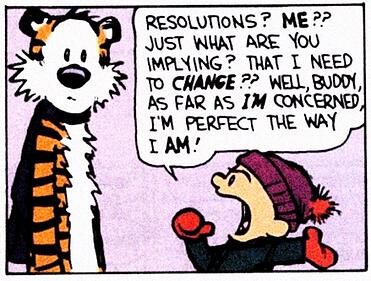"I can't even imagine winning something big...I don't want to put my focus on that because I don't want to lose the joy."
These days I hear a lot about "stretch goals," and creating big goals for yourself.
So why are these ultra-runners saying things like "I don't have any expectations" and "It's not about being the strongest?" In fact, no one is even talking about training and beating personal records.
What they're talking about is passion. Because they love what they do they're not going to talk about the list of goals they've made. When they wake up in the morning the first thing they want to do is what they love: run. They're so wrapped up in their love of the mountains and being outside with peers that they don't need a checkbox to motivate them. They see beyond the checkbox to a more meaningful vision.
Perhaps these runners embody Peter Bregman's plea for all of us to consider not setting goals, and proof that purpose will always outrun goals.
PURPOSE GENERATES PROFIT
Anthony K Tjan wrote an article in the Harvard Business Review explaining why he thinks "It Takes Purpose to Become a Billionaire." While not all billionaires are altruistic, Tjan does make a good case that
"Purpose is neither soft nor something lofty."
Creating and pursuing a purpose is tangible--it's not some high-in-the-sky ambiguous dream. Purpose has got to have weight; it's got to challenge you; it's got to be clear and poignant.
These ultra-runners aren't just aimlessly running about. Despite their resistance to stretch goals, they are deliberate about choosing to push themselves while doing what they love--they are simply choosing to do more of what they love and to do it better.
"You have to race against the best to get better." But "I don't have any expectations." This strategy seems to work.
Why?
Ray B. Williams wrote an article in Psychology Today where he reports that "stretch goals are an ineffective pracitce...a study shows that when individuals repeatedly fail to reach stretch goals their performance declines. Another study showed 10% of employees actually achieved stretch goals."

Only 10% achieve stretch goals. So why do we keep setting these big goals for ourselves and our employees? Why do employees fail so often?
Williams suggests that "goal setting sets up an either-or polarity of success. The only true measure can either be 100% attainment or perfection, or 99% and less, which is failure. We can then excessively focus on the missing or incomplete part of our efforts, ignoring the successful parts."
Other evidence provided by Williams showing that goal-setting could do more harm than good:
- Our brains are resistant to change, and any goals that require substantial behavioral change will be immediately resisted
- Goal setting can focus too much attention on the wrong things
- Whenever we desire things we don't have, we set our brain's nervous system to produce negative emotions
Looks like goals are tough to reach in the first place, and the last thing you want is for morale to drop in the office.
If you want to be a visionary leader as well as profitable, focus on purpose, not goals.
GOALS GONE BAD
Peter Bregman asserts that
“It’s practically impossible to predict the negative side effects of a goal. When we set goals, we’re taught to make them specific and measurable and time-bound. But it turns out that those characteristics are precisely the reasons goals can backfire. A specific, measurable, time-bound goal drives behavior that’s narrowly focused and often leads to either cheating or myopia. Yes, we often reach the goal, but at what cost?”
Sure. You made it to the end of the race, but now you’ve stress-fractured your femur for the 15th time, and now you’ll probably never run again. Oops.
A study revealed that some of the negative side effects of goal-setting were:
- A narrow focus that neglects non-goal areas
- A rise in unethical behavior
- Distorted risk performances
- Corrosion of organizational culture
- Reduced intrinsic motivation
Yikes.
REPLACE GOALS WITH PURPOSE (AKA: PASSION)
I know it seems crazy to throw out goals and to-do lists, but I'm not telling you to throw the baby out with the bath water. Yes, stuff has to get done. But don't get so narrowly focused on goals that you either overlook other options that present themselves, or you end up doing more harm than good because you're unwilling to change course away from those goals.
Jan Bruce writes, "your success--as a leader, visionary, executive--isn't just the sum of all you do in any given day or even in a given year. That's because excellence isn't a list of to-do's."

Bruce argues that success lies in a company’s mission statement. Let your mission guide you rather than the daily tasks that do indeed have to get done if you’re going to do more than daydream.
If you’re passionate about your mission statement you’ll be more motivated to get those mundane tasks done, and you won’t be deterred by a checklist.
Ariel Schwartz sites another study which shows that 82% of respondents working at an organization with a strong sense of purpose believe that their organization will grow over the next year...compared to just 48% of respondents working for companies without a sense of purpose are hopeful about growth prospects.
If you want your employees to get a profitable outlook on their goals and the potential of the company, it’s probably a good idea to make sure that not only does your business have a mission, but that your employees know what it is. Every morning and every evening employees should be evaluating whether or not what they accomplished that day will lead them closer to the mission and the purpose of the company.
When 90% of employees believed that their organization had a sense of purpose, these companies also reported a strong financial showing over the past year.
You want your employees to know why the company does what it does. Having a sense of purpose makes it easier to get through the mundane tasks, and navigate problems with optimism and clarity.
LET'S RUN

Find a way to restore purpose and passion into your company.
When running gets in your blood you’ll put up with a whole lot of risk and pain--and a whole lot of joy and success.
Here’s some suggestions to get your employees up and running with a sense of purpose:
- If you don’t have a mission statement, write one.
- Review your mission statement with all your employees. Ask for their honest opinion. Does the mission statement inspire them or not? What could be improved and clarified?
- Make your mission statement part of every decision. Keep the big picture in mind as you navigate the daily to-do’s. Always check in with the mission statement.
Ultra-runners run because they love it, not because they made a checklist.
It's the same for you: if you want to be successful you've got to identify and connect to a deeper purpose. Everything else hinges on this.

References:
(2013, September 10) Tjan, Anthony. It Takes Purpose To Become a Billionaire. Harvard Business Review Blog Network. Retrieved July 8, 2014 from http://blogs.hbr.org/2013/09/it-takes-purpose-become-a-bill/?utm_content=buffer56dd1&utm_medium=social&utm_source=twitter.com&utm_campaign=buffer
(2011, April 11) Williams, Ray B. Why Goal Setting Doesn't Work. Psychology Today. Retrieved July 9, 2014 from http://www.psychologytoday.com/blog/wired-success/201104/why-goal-setting-doesnt-work
(2012, December 14) Bregman, Peter. Consider Not Setting Goals in 2013. Harvard Business Review Blog Network. Retrieved July 9, 2014 from http://blogs.hbr.org/2012/12/consider-not-setting-goals-in/
(2013, September 24) Bruce, Jan. The Purpose-Driven Business: Why Your Mission Matters. Forbes. Retrieved July 9, 2014 from http://www.forbes.com/sites/janbruce/2013/09/24/the-purpose-driven-business-why-your-mission-matters/
(2014, April 7) Schwartz, Ariel. What's Going To Make a Company Grow? Being a Purpose-Driven Business? Co.Exist. Retrieved July 10, 2014 from http://www.fastcoexist.com/3028678/whats-going-to-make-a-company-grow-being-a-purpose-driven-business
What To Read Next:
The Secret To Visionary Leadership: Get Flexible
7 Habits of Highly Profitable Businesses














.png)


